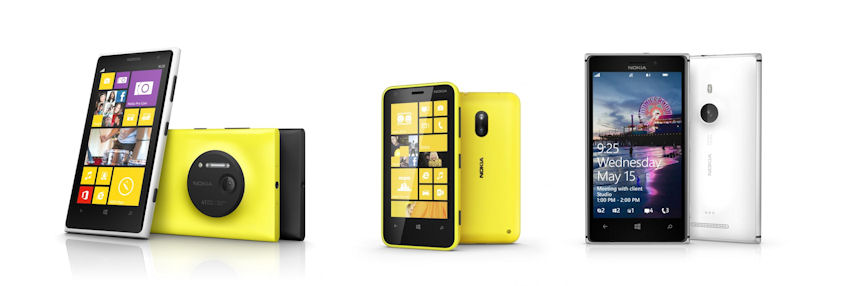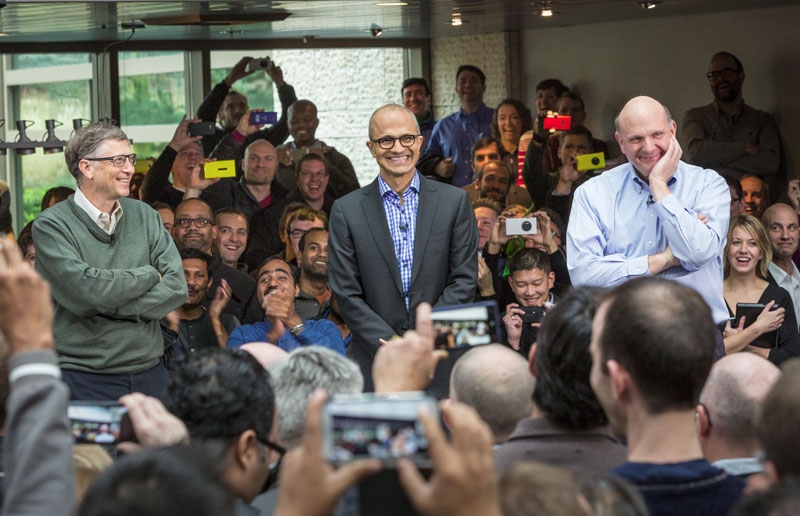This is a topic with a decent amount of speculation in the media, and with good reason. Discounting iOS from the discussions (because even with the best will in the world, I can't see Apple allowing a third-party manufacturer to distribute an iOS powered smartphone), the challenge for Microsoft is to build up market share and volume, and the assumption is that any growth is going to come from eating into Android's share of the market.

Much of Android's growth can be found in the low-end market, and this is an area where Windows Phone has an advantage on paper. The hardware requirements are lower, providing for a better user experience on the lower cost chipsets and hardware; the core phone and mobile applications work together well both on the device and in the cloud; and (putting aside some of the latest games) the third-party app scene is more than mature enough to cope with user demands.
The challenge is not just to capture the mind share of the consumers, but to have Windows Phone considered as a valid option by handset manufacturers.
That's why the announcement of a number of 'off the shelf' reference designs at Mobile World Congress last month is interesting. Turn-key solutions to creating hardware cut the cost of the design process to manufacturers, who can 'simply' bolt on the hardware combinations a reference design allows, package it up in their own physical design, and place them into the retail distribution channels.
A reference design on its own will not be enough to tempt them, any competent manufacturer can find reference designs for Android devices using similar hardware with very little effort. The cost reduction that a reference design can provide helps Windows Phone but it still leaves one component that has a huge impact on the bill of materials. The cost of the Operating System.
Android is famously a 'free' mobile operating system, although many manufacturers feel the need to accept the licencing and testing requirements to allow Google's own apps run on their device and have access to the Google Play store. This does involve a cost, but is a rather opaque cost.
This is where a free Windows Phone could make a difference. By publicly and drastically reducing the licence cost to $0.00, Microsoft would be making a very clear statement. They should not do a little bit of a change and apply a discount on the OS for devices that cost under $99, although I could see some thinking that a discount, while preserving the licensing model, might have a short-term attraction. If you are going to make a cut, go all the way with an all handsets, all price levels, zero cost licence fee for the Windows Phone OS.
Given that the lion's share of Windows Phone sales will soon be coming from an internal department at Redmond and the licence fee payment would be (a rather significant) internal accounting exercise, dropping the payment required from third parties would not have a huge impact on the short-term cash flow. It might also help mitigate lingering worries about Microsoft favouring the internal handsets over those made by their partners.
Just like Android, there would be some very carefully worded statements to promote this free version. The licence fee for Windows Phone isn't the end of the financial matters for a manufacturer, there are patents outside of the core operating system to consider, and of course the bill of materials for the hardware still figures highly in the budget. But at the low-end, fractions of pennies make a difference. The dropping of the licence fee would be a huge incentive to manufacturers working at the lower end of the portfolios.
I'd even argue that if Microsoft really wanted to push the boat out, the 'free' licence would also cover many of the patents that come under their control, and could even subsidise patents from other manufacturers. They have a war chest that can be used to establish a position for the future in mobile, why not use it to push Windows Phone adoption by as many parties as possible?

Why would they do this? I think it comes down to Microsoft's future direction. The trend over the last few years in the online space has been to place a premium on services in the cloud, to capture the user login, and act as the benevolent cloud provider. Microsoft are moving towards that strategy with the consumer (witness the growing focus on OneDrive, Office 365, and the venerable Xbox Live Gold memberships).
Every single Windows Phone creates a new user of Microsoft's cloud services, or intensifies the relationship of an existing user.
If that cost of acquisition has to include a free Windows Phone licence, then it should be a cost worth paying. Microsoft needs to be part of the mobile revolution, and while Nokia's fork of Android makes for some interesting headlines and issues around the positioning of the 'X' handsets, the short and medium term future is going to include Windows Phone.
While it will include the mobile OS, what form this future will take is still unclear, because there's no clear answer on which strategy Microsoft should employ going forward. There is a clear result for the last few years of using a full licensing model which can be used to judge the current strategy. It has delivered around 10% of the global market with little significant share in the domestic US market. If that strategy continues there is likely to be a small amount of growth but nothing that would allow Microsoft to advanced past the 10%-12% level. I'm not sure if that's enough market share in mobile for new CEO Satya Nadella. At the very least, I am expecting tweaks at the Build Developer Conference next month. I just wonder how far the new Microsoft will go, if at all...
